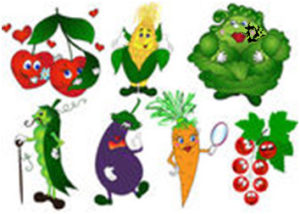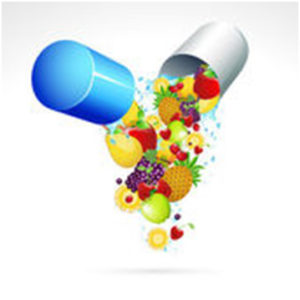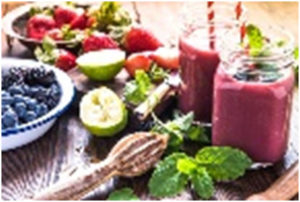What The Food And Supplement Industries Don’t Want You To Know
Author: Dr. Stephen Chaney
 Healthy Eating Is In. We are told we need more fiber, whole grains, fruits & vegetables, nuts and omega-3s in our diet. We are being told that we should be eating “super foods” we’ve never heard of because of their amazing health benefits. As a consequence, more and more Americans are reading labels to be sure that the foods and supplements they are buying are healthy. We trust the FDA and others not to allow us to be had by deceptive food labels.
Healthy Eating Is In. We are told we need more fiber, whole grains, fruits & vegetables, nuts and omega-3s in our diet. We are being told that we should be eating “super foods” we’ve never heard of because of their amazing health benefits. As a consequence, more and more Americans are reading labels to be sure that the foods and supplements they are buying are healthy. We trust the FDA and others not to allow us to be had by deceptive food labels.
But what if those food labels were deceptive? What if the food labels were more about marketing than about real health benefits? Is it possible that BIG FOOD Inc. and the supplement industry could actually be lying to us? Could it be that the manufacturers care more about their profits than about our health?
Deceptive Food Labels?
Vegetable & Fruit Follies In The Supermarket
Everyone knows that fruits and vegetables are good for us. They are chock-full of vitamins, minerals, and phytonutrients as well as fiber. But who wants to spend the time peeling an orange or washing the pesticides off that broccoli? It’s much more fun to get our fruits and vegetables from chips, pasta, and breakfast cereals.
 Food manufacturers are only too happy to oblige. The chemical companies make a variety of fruit and vegetable powders that food manufacturers can add to their products. For example, Powder Pure tells food manufacturers “Whether you want to add nutrition to your label, infuse full color, or formulate a specific flavor profile for your discerning consumers, Powder Pure has the right powder to enhance your presence in the marketplace.” You will notice they are talking about adding nutrition to the label, not to the food. They are talking about “enhancing your presence in the marketplace,” not making your food healthier.
Food manufacturers are only too happy to oblige. The chemical companies make a variety of fruit and vegetable powders that food manufacturers can add to their products. For example, Powder Pure tells food manufacturers “Whether you want to add nutrition to your label, infuse full color, or formulate a specific flavor profile for your discerning consumers, Powder Pure has the right powder to enhance your presence in the marketplace.” You will notice they are talking about adding nutrition to the label, not to the food. They are talking about “enhancing your presence in the marketplace,” not making your food healthier.
The problem is that sprinkling a little fruit and vegetable powder into a processed food will never provide the full range of nutrients that those fruits and vegetables would have provided.
Most manufacturers can’t (or won’t) specify the amounts of nutrients and phytonutrients you get from the fruit & vegetable powders they add to their processed foods, but that doesn’t stop them from making label claims like “We pop a flavorful blend of nine veggies…[in our chips]” or there is “half serving of vegetables in a 2 oz serving…[of our pasta].” Is this using deceptive food labels?
The Fruits & Vegetables in a Capsule Con
One of my pet peeves is the food supplement manufacturers who try to tell you that they have concentrated a cornucopia of fresh fruits and vegetables in a capsule. For example, one company claims that their capsules contain apple, barley, broccoli, beet, cabbage, carrot, cranberry, date, garlic, kale, oats, orange, parsley, peach, pineapple, prunes, spinach, plant enzymes, fiber, and acidophilus. All this in one capsule! Does that sound like the use of deceptive food labels?
While this list sounds impressive, you need to ask whether they are providing meaningful amounts of those fruits and vegetables. For example, the product claims to have oats. A serving of oats is equal to 1/3 cup dry oats and weighs about 28 grams. A capsule typically weighs about 0. 5 grams. Therefore, to get the equivalent of one serving of oats from a capsule, you would have to consume 56 capsules! And that’s assuming that the entire capsule was filled with oats.
Broccoli is another claimed ingredient. A serving of fresh broccoli weighs 88 grams, but roughly 80 grams of that is water. So if you dehydrated the broccoli you would be left with about 8 grams of material. Therefore, to get a single serving of dehydrated broccoli you would have to consume 16 capsules. Again, that’s assuming that the capsules were completely filled with just broccoli.
You can do this kind of calculation with each ingredient they claim is in their capsules. But when you add up the number of capsules needed to get a reasonable amount of each of these ingredients, the capsule total is staggering.
 As for essential nutrients, when you read the labels on some of these products you discover that their capsules only contain small amounts of a few essential nutrients. They simply do not provide significant amounts of the vitamins, minerals, and phytonutrients you would have been getting if you ate the real foods.
As for essential nutrients, when you read the labels on some of these products you discover that their capsules only contain small amounts of a few essential nutrients. They simply do not provide significant amounts of the vitamins, minerals, and phytonutrients you would have been getting if you ate the real foods.
On the other hand, if the label does list significant amounts of the essential nutrients, that’s usually because purified vitamins and minerals have been added to the final product. Those products are no different from any other multivitamin supplement except that they contain insignificant quantities of fruit and vegetable powders that provide no additional health benefits. Once again, it’s all about using deceptive food labels marketing, not your good health.
Faux Protein Supplements
The same deceptive marketing practices have also entered the lucrative protein supplement marketplace. You are being told about protein products that are full of fruits & vegetables, super foods and herbs. It all sounds wonderful, but once again it is all smoke and mirrors. These companies are just mixing a little fruit and vegetable powders in with their protein powder.
You are being told that these products contain dozens of fruits and vegetables that provide vitamins and antioxidants in their natural form. However, when you read the label it is obvious that many of the vitamins and minerals in that product never saw a fruit or vegetable. They were synthesized in a chemical laboratory and added to the final product along with the fruit and vegetable powders.
You are being told that these products contain super foods that provide important phytonutrients, but none of those phytonutrients is present in sufficient quantities to be featured on the nutrition label. You are told that these products contain herbal ingredients with amazing healing powers, but none of the active ingredients of the claimed herbs are present in high enough quantities to be included on the nutrition label.
 Once again, it is all about marketing. Manufacturers are adding fruit and vegetable powders and a pinch of herbal ingredients to their protein powders so that they can make marketing claims, but those fruit and vegetable powders and herbal ingredients aren’t present in large enough quantities to make any significant impact on your health.
Once again, it is all about marketing. Manufacturers are adding fruit and vegetable powders and a pinch of herbal ingredients to their protein powders so that they can make marketing claims, but those fruit and vegetable powders and herbal ingredients aren’t present in large enough quantities to make any significant impact on your health.
Allowed Label Claims
Many of you have asked me about companies that claim their supplement has the amount of vitamin C found in 7 oranges or the amount of folic acid found in 4 cups of cooked green peas. Those are allowed claims and are generally accurate. Just don’t assume that the vitamin C actually came from 7 oranges (it didn’t) or that their supplement has all the nutrients found in 7 oranges (it doesn’t). Again, these companies find ways to use deceptive food labels to make sales.
The Bottom Line
- We are being told that we should read labels to make sure that the foods and supplements we buy are good for us. We are also being told that we should be eating more fruits and vegetables. Food manufacturers know an emerging trend when they see one, so many of them are adding fruit and vegetable powders to the foods and supplements they manufacture. This increases the marketing appeal of their products, but does nothing to make their products healthier. It is label deception, pure and simple.
If you want to avoid being deceived by deceptive food labels, you should:
- Ignore the label claims of fruits and vegetables added to the processed foods you see in the market. The fruit and vegetable powders added to those foods provide no proven benefit. The best place to get your fruits and vegetables is to [surprise] eat your fruits and vegetables.
- Leave those supplements claiming to have concentrated lots of fruits and vegetables into a single capsule on the shelf. Those claims are grossly deceptive because the capsules do not contain significant amounts of the fruits and vegetables listed on the label. They do not provide the nutrients you would have gotten if you had eaten the real foods. Once again, the best way to get the fruits and vegetables you need in your diet is to actually eat fresh fruits and vegetables.
- Forget those protein supplements that make amazing claims based on all the fruits, vegetables, super foods, and herbal ingredients they have. Once again, the fruit and vegetable powders and herbal ingredients in these products are not present in sufficient quantities to provide any significant health benefits. It is the marketing that is amazing, not the health benefits.
- Finally, many of you have asked me about companies that claim their supplement has the amount of vitamin C found in 7 oranges or the amount of folic acid found in 4 cups of cooked green peas. Those are allowed claims and are generally accurate. Just don’t assume that the vitamin C actually came from 7 oranges (it didn’t) or that their supplement has all the nutrients found in 7 oranges (it doesn’t).
These statements have not been evaluated by the Food and Drug Administration. This information is not intended to diagnose, treat, cure or prevent any disease.
